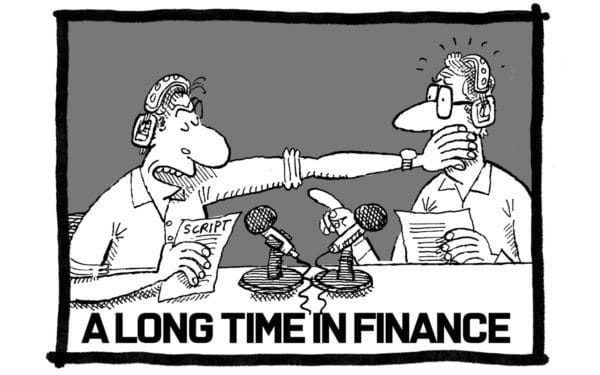Budgets inevitably weigh heavily on the shoulders of any Chancellor. The chance to reshape and reboot Britain’s economic performance, the media frenzy and political scrutiny, and the knowledge that any misstep – no matter how minor – could turn a stellar performance at the despatch box into an omnishambles budget that leaves George Osborne’s 2012 offering in the shade.
Rishi Sunak and the team at the Treasury will have an additional burden this week. The astronomical cost of Coronavirus relief, as well as the opportunities and challenges of Brexit, will make Wednesday’s Budget one of the most consequential in years.
Many, both within and outside government, are calling on the Chancellor to consider hefty tax rises – including raising the corporation tax rate – as a way to begin paying back the mountain of government spending over the last twelve months, but it is hard to imagine a worse path to take.
In 2016, the Institute of Economic Affairs published ‘Taxation, Government Spending and Economic Growth’, which argued that the optimal level of government spending for economic growth could be as low as 18.5 per cent of GDP. The report made the case for reforming or scrapping 20 major taxes which were holding Britain back.
In 2019/20, UK government spending equalled more than twice that figure, at 35.4 per cent. The country’s tax burden is the highest it has been for a generation, the tax code continues to grow – tripling since 1997 – and with every added regulation come additional offsets, loopholes, and economic distortions. Some may argue that the midst of a pandemic is no time to introduce radical tax reform, but the inverse might be true; at a time when economic growth is most needed, businesses and individuals need a tax system that brings clarity.
The IEA has this month revisited that 2016 research, looking afresh at the taxes which could be trimmed or binned in order to drive the bounce back Britain needs – provided the Treasury embraces a touch of radicalism.
In 20 Taxes to Scrap: How to grow the UK economy by simplifying the tax system, the authors argue some taxes could be abolished entirely. Let’s start with stamp duty – described by the Institute of Fiscal Studies (though they are not alone) as “a strong contender for the UK’s worst designed tax”. It disincentivises older people from downsizing, gumming up a housing market which already struggles with under-supply. It has a negative impact on younger people’s ability to marry and start a family. The Chancellor has already signalled that the upcoming Budget will see an extension of the stamp duty holiday, announced in last July’s mini-Budget, but he should go a step further and scrap the tax completely.
The Apprenticeship Levy is no more than a crude and bureaucratic payroll tax which has led to existing training programmes being rebranded in order for businesses to recoup the cash, not the creation of new, high-quality apprenticeships as supporters originally claimed.
Other taxes should be scrapped because they no longer represent the modern era or have moved immeasurably far from their intended purpose. The licence fee – a £157.50 charge on any household watching or recording live TV transmissions, regardless of whether they watch BBC programming – was designed in an age where radio and television services were non-excludable and there were only three channels. Tens of thousands of global channels can today be accessed through set top boxes and online streaming.
Air Passenger Duty – which was originally intended as a revenue raiser for the government – has become a proxy green tax but the loopholes and exemptions, as well as lack of similar taxes for other polluting modes of travel, mean it would be better scrapped or replaced with a comprehensive carbon tax.
Many taxes listed in the report need to be streamlined and simplified in order to reduce the burden of compliance on businesses, something which will be increasingly important as we seek to stimulate the growth of new businesses and the creation of more employment opportunities for the millions who have struggled under furlough and redundancy.
There is a strong economic case for moving towards a more open and efficient tax code. It is hard to imagine any Chancellor dropping the axe on 20 taxes in one swoop – regardless of how much governments may talk about reducing burdens on business. But set against a backdrop of vast national debt and the deepest recession in three centuries, it is exactly what we need.
Emma Revell is Head of Public Affairs at the Institute of Economic Affairs.




